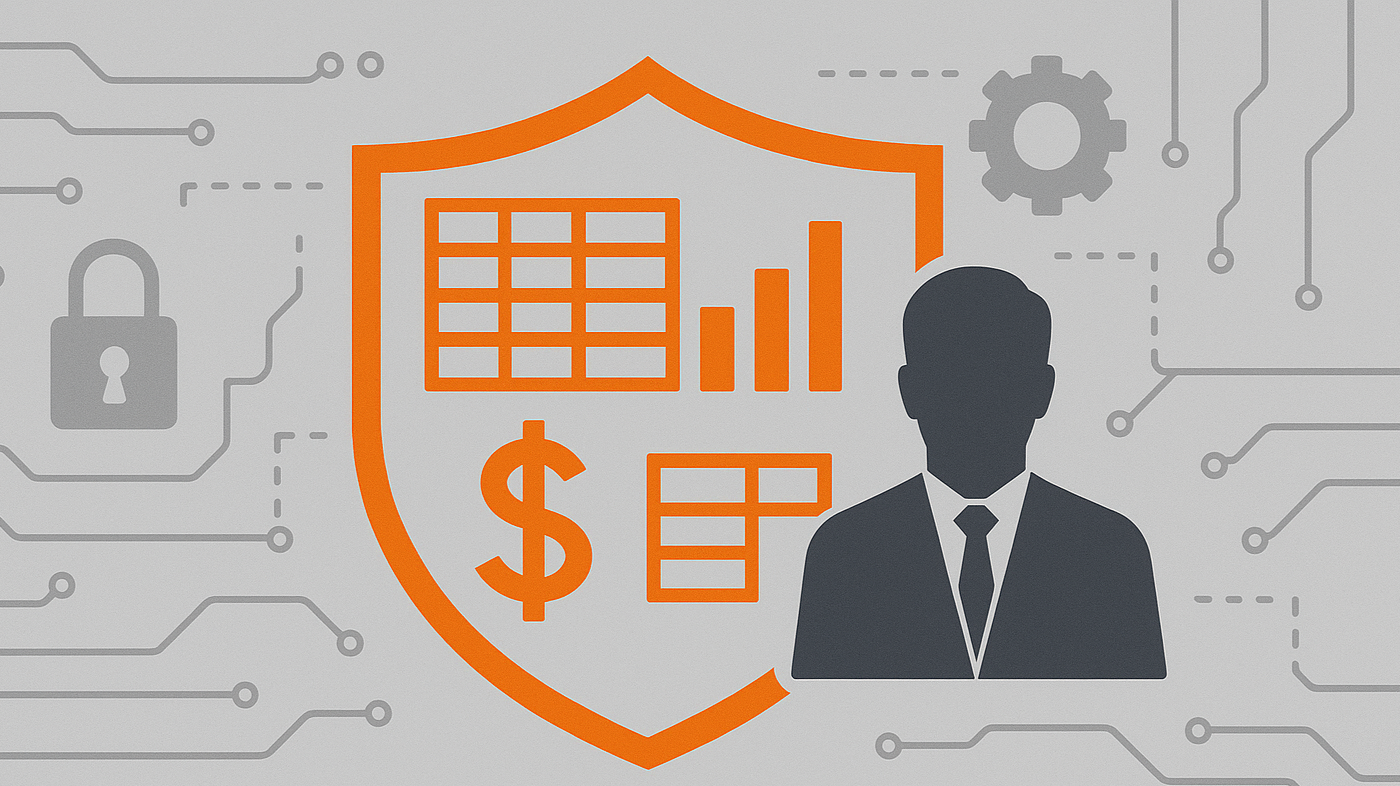Cybersecurity for Accounting Departments: Protecting the Heart of Your Business
Cybercrime has exploded in recent years, and accounting functions are now on the front lines. Since the pandemic, cyberattacks targeting financial systems have surged by over 300%, with ransomware and phishing leading the charge.
Small and mid-sized companies are especially at risk. Unlike enterprise corporations, they often lack the budget, staff, and infrastructure to build enterprise-grade defenses. But attackers know that accounting departments sit at the core of every business—holding payroll, tax records, vendor payment details, and bank data.
To a cybercriminal, this isn’t just information. It’s leverage.
The Biggest Cyber Threats for Accounting in 2025/2026
Attackers are evolving, and accounting departments must know what they’re up against. Here are the top risks to watch:
Ransomware – Encrypts files and demands payment, halting payroll, AP, and reporting.
Phishing & Social Engineering – Emails disguised as vendor invoices or executive requests trick staff into revealing credentials.
Outdated Software – Legacy ERP systems without updates are easy entry points.
Cloud Security Gaps – Poorly configured remote access leaves sensitive financial data exposed.
Insider Risks – Weak passwords, reused credentials, and employee mistakes compromise data integrity.
Accounting teams were designed to process numbers, not repel hackers. But the reality is that today’s workflows make them vulnerable:
High-value data – Tax IDs, payroll files, bank details, and vendor accounts are rich targets.
Standardized systems – Widely used ERP or accounting software creates repeatable attack opportunities.
Remote & hybrid work – Home networks and personal devices add risk.
Insider threats – Employee errors—or deliberate fraud—can open the door to breaches.
For small and mid-sized businesses, a single breach can be devastating. In fact, 60% of SMBs close within six months of a major cyberattack.
The True Cost of Doing Nothing
A successful cyberattack is not just an IT headache—it’s a business crisis.
· Financial losses: stolen funds, remediation costs, regulatory fines
· Operational disruption: delayed payroll, vendor payments, and reporting
· Reputation damage: loss of customer and vendor trust
· Legal exposure: penalties for failure to safeguard sensitive information
How SMB Accounting Teams Can Build Cyber Resilience
The good news: protecting your department doesn’t require enterprise budgets. With smart, targeted steps, small and mid-sized businesses can dramatically strengthen their defenses:
· Harden defenses with firewalls, MFA, and anti-malware
· Update and patch accounting and ERP applications quickly
· Back up data securely in the cloud or on remote devices
· Train employees through phishing simulations and ongoing awareness programs
· Set policies and incident response plans for suspected breaches
· Restrict access so only those who truly need data can reach it
· Leverage managed services for 24/7 monitoring and expert support
For small and mid-sized businesses, the accounting department isn’t just another back-office function—it’s the financial engine of the company. Without robust cybersecurity, that engine is exposed.
With cybercrime projected to cost the global economy $10.5 trillion annually by 2025, protecting financial data is no longer optional.
At Quantum FBI, we help growing businesses protect what matters most: your financial data, your operations, and your reputation.


